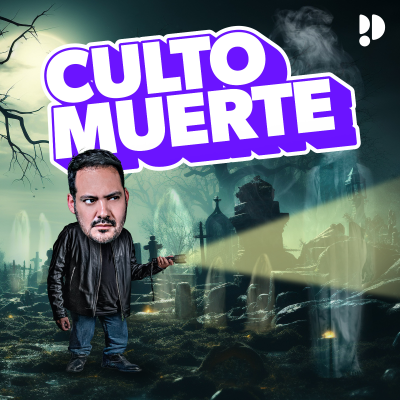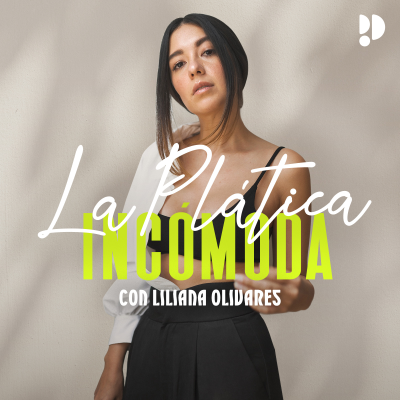
In Our Time
inglés
Historia y religión
Empieza 7 días de prueba
$99 / mes después de la prueba.Cancela cuando quieras.
- 20 horas de audiolibros al mes
- Podcasts solo en Podimo
- Podcast gratuitos
Acerca de In Our Time
Spanning history, religion, culture, science and philosophy, In Our Time from BBC Radio 4 is essential listening for the intellectually curious. In each episode, host Misha Glenny and expert guests explore the characters, events and discoveries that have shaped our world. History fans can learn about pivotal wars and societal upheavals, such as the rise and fall of Napoleon, the Sack of Rome in 1527, and the political intrigue of the Russian Revolution. Those fascinated by the lives of kings and queens can journey to Versailles to meet Marie Antoinette and Louis XIV the Sun King, or to Ancient Egypt to meet Cleopatra and Nefertiti. Or perhaps you're looking to explore the history of religion, from Buddhism's early teachings to the Protestant Reformation. If you're interested in the stories behind iconic works of art, music and literature, dive in to discussions on the artistic genius of Michelangelo's Sistine Chapel and Van Gogh's famous Sunflowers. From Gothic architecture to the works of Shakespeare, each episode of In Our Time offers new insight into humanity's cultural achievements. Those looking to enrich their scientific knowledge can hear episodes on black holes, the Periodic Table, and classical theories of gravity, motion, evolution and relativity. Learn how the discovery of penicillin revolutionised medicine, and how the death of stars can lead to the formation of new planets. Lovers of philosophy will find episodes on the big issues that define existence, from free will and ethics, to liberty and justice. In what ways did celebrated philosophers such as Mary Wollstonecraft and Karl Marx push forward radical new ideas? How has the concept of karma evolved from the ancient Sanskrit texts of Hinduism to today? What was Plato's concept of an ideal republic, and how did he explore this through the legend of the lost city of Atlantis? In Our Time celebrates the pursuit of knowledge and the enduring power of ideas.
Todos los episodios
1194 episodiosThe Mariana Trench
Misha Glenny and guests discuss one of the wonders of the natural world. In 1875 in the western Pacific, the crew of HMS Challenger discovered the Mariana Trench which turned out to be deeper than Everest is high, by two kilometres. Trenches like Mariana form when one tectonic plate slips under another and heads down and there are around fifty of them globally. While at one time some thought it was too dark and deep for life there and others wildly imagined monsters, the truth has turned out to be much more surprising. With Heather Stewart, Director of Kelpie Geoscience and Associate Professor at the University of Western Australia Jon Copley Professor of Ocean Exploration and Science Communication at the University of Southampton And Alan Jamieson Director of the Deep Sea Research Centre at the University of Western Australia Producer: Simon Tillotson Reading list: Susan Casey, The Underworld: Journeys to the Depths of the Ocean (Doubleday, 2023) Jon Copley, Deep Sea: 10 Things You Should Know (Orion Books, 2023) Hali Felt, Soundings: The Story of the Remarkable Woman Who Mapped the Ocean Floor (Henry Holt & Co, 2012) M.E. Gerringer, ‘Pseudoliparis swirei: A newly-discovered hadal liparid (Scorpaeniformes: Liparidae) from the Mariana Trench’ (Zootaxa 4358 (1), 161-177, 2017) A.J. Jamieson, The Hadal Zone: Life in the Deepest Oceans (Cambridge University Press, 2015) A.J. Jamieson et al., ‘A global assessment of fishes at lower abyssal and upper hadal depths (5000 to 8000 m)’ (Deep-Sea Research Part 1. 178: 103642, 2021) A.J. Jamieson et al., ‘Fear and loathing of the deep ocean: Why don’t people care about the deep sea?’ (ICES Journal of Marine Science. 78: 797-809, 2020) A.J. Jamieson et al., ‘Microplastic and synthetic fibers ingested by deep-sea amphipods in six of the deepest marine environments on Earth’ (Royal Society Open Science, 6, 180667, 2019) A.J. Jamieson et al., ‘Bioaccumulation of persistent organic pollutants in the deepest ocean fauna’ (Nature Ecology and Evolution. 1, 0051, 2017) V.L. Vescovo et al., ‘Safety and conservation at the deepest place on Earth: A call for prohibiting the deliberate discarding of nondegradable umbilicals from deep-sea exploration vehicles’ (Marine Policy. 128, 104463, 2021) J.N.J. Weston et al., ‘New species of Eurythenes from hadal depths of the Mariana Trench, Pacific Ocean (Crustacea: Amphipoda)’ (Zootaxa. 4748(1): 163-181, 2020) In Our Time is a BBC Studios Production Spanning history, religion, culture, science and philosophy, In Our Time from BBC Radio 4 is essential listening for the intellectually curious. In each episode, host Misha Glenny and expert guests explore the characters, events and discoveries that have shaped our world.
On Liberty
Journalist, author and historian Misha Glenny presents his first edition of In Our Time, succeeding Melvyn Bragg who retired from this role last summer. Misha and his guests discuss the landmark work On Liberty by John Stuart Mill, published in 1859 and the increasing recognition for his wife Harriet Taylor Mill's contribution. The subject matter of the essay is ‘civil or social liberty: the nature and limits of the power which can be legitimately exercised by society over the individual’ and it argues that the sole end for which mankind may interfere with the liberty of action of anyone is self-protection and even then only to prevent harm to others. This essay became enormously popular and a foundational text for liberalism. With Helen McCabe Professor of Political Theory at the University of Nottingham Mark Philp Emeritus Professor of History and Politics at the University of Warwick And Piers Norris Turner Associate Professor of Philosophy at The Ohio State University Producer: Simon Tillotson Reading list: Jo Ellen Jacobs (ed.), Harriet Taylor Mill, Complete Works (Indiana University Press, 1998) Bruce L. Kinzer, Ann P. Robson and John M. Robson, A Moralist In and Out of Parliament: John Stuart Mill at Westminster, 1865-1868 (University of Toronto Press, 1992) Christopher Macleod and Dale Miller (eds.), A Companion to Mill (Wiley, 2016) Helen McCabe, John Stuart Mill, Socialist (McGill-Queen’s University Press, 2021) Helen McCabe, Harriet Taylor Mill (Cambridge, 2023) Piers Norris Turner, ‘The Arguments of On Liberty: Mill’s Institutional Designs’ (Nineteenth-Century Prose 47 (1), 2020) Piers Norris Turner et al (eds.), John Stuart Mill and Harriet Taylor Mill, On Liberty with Related Writings (Hackett Publishing, forthcoming 2026) Mark Philp (ed.), John Stuart Mill: Autobiography (Oxford University Press, 2018) Mark Philp and Frederick Rosen (eds.), John Stuart Mill: On Liberty, Utilitarianism and other Essays (Oxford University Press, 2015) Frederick Rosen, Mill (Oxford University Press, 2013) Alan Ryan, The Philosophy of John Stuart Mill (Palgrave MacMillan, 1998) Ben Saunders, ‘Reformulating Mill’s Harm Principle’ (Mind 125/500, 2016) John Skorupski, Why Read Mill Today? (Routledge, 2006) William Stafford, John Stuart Mill (Red Globe Press, 1998) C. L. Ten (ed.), Mill: On Liberty: A Critical Guide (Cambridge University Press, 2008) Nadia Urbinati and Alex Zakaras (eds.), John Stuart Mill’s Political Thought: A Bicentennial Reassessment (Cambridge University Press, 2007) In Our Time is a BBC Studios production
Welcoming Misha Glenny to the In Our Time studio
Misha Glenny introduces himself to you ahead of his first episode on 15th January, answering some questions from producer Simon Tillotson and sharing what's coming up in the first few weeks. In Our Time is a BBC Studios production
While you wait: The Death of Reading (from The Global Story)
While you wait for the new season of In Our Time with Misha Glenny, we’re introducing you to The Global Story, a new daily podcast from the BBC. In this episode, writer and voracious reader James Marriott discusses the so-called 'death of reading'. He argues that we may be entering a post literate age – shaped by addictive screen culture, fragmented attention, and an overflow of trivial or unreliable information. The conversation traces how the 18th century 'reading revolution' helped shape the modern world, and what its decline could mean for education, culture, and democracy today. If you enjoy this episode, you can find new instalments of The Global Story every day wherever you get your BBC Podcasts.
Melvyn Bragg meets Misha Glenny
Before Misha Glenny's first edition on 15th January, BBC Radio 4's flagship news programme Today has brought Melvyn Bragg and Misha Glenny together so they can share their ideas about In Our Time's success and discuss what, if anything, will change with Misha. While Justin Webb chaired this discussion, here you will hear Melvyn introduce it and at the end he has a message for Misha and for listeners around the world. This is a longer version of the discussion broadcast on Today on Radio 4 on Christmas Eve 2025 which was produced by Jade Bogart-Preleur, when Melvyn Bragg was the guest editor. In Our Time is a BBC Studios Production.
Elige tu suscripción
Premium
20 horas de audiolibros
Podcasts solo en Podimo
Podcast gratuitos
Cancela cuando quieras
Empieza 7 días de prueba
Después $99 / mes
Empieza 7 días de prueba. $99 / mes después de la prueba. Cancela cuando quieras.





































